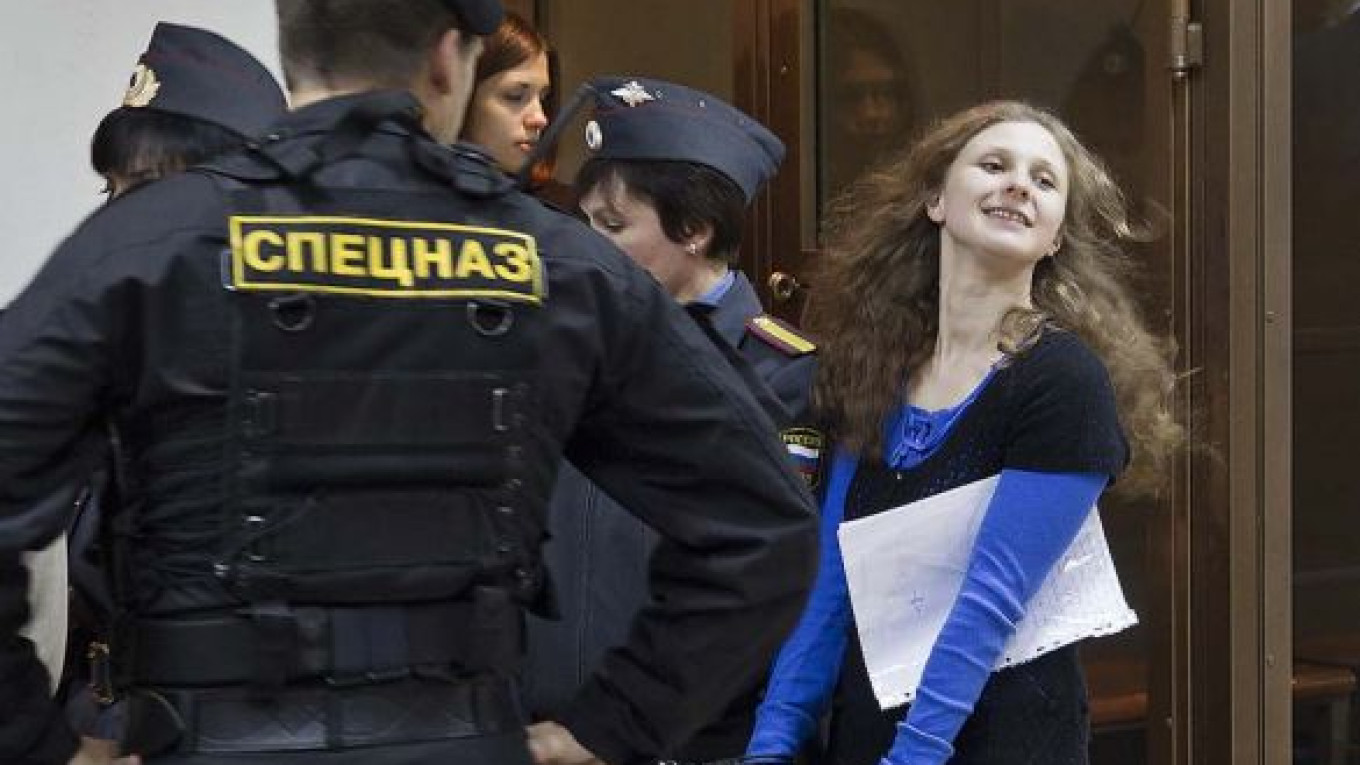Jailed Pussy Riot member Maria Alyokhina, who is currently serving a two-year sentence at a penal colony in the Perm region town of Berezniki, may be transferred to another correctional facility, two news reports said Wednesday.
The regional prosecutor's office has demanded that Alyokhina be transferred to another prison after a check found that she, a first-time offender, had illegally been placed in a prison with repeat offenders, Kommersant reported.
Prison regulations also prohibit inmates from being placed in solitary confinement more than once in the same colony, and Alyokhina has been in solitary confinement twice. In November, Alyokhina asked prison officials to place her in an individual cell because of a conflict with two other inmates. After 90 days in solitary confinement, Alyokhina asked to be left there for a longer period.
An unidentified official in the regional prosecutor's office told Interfax that a decision would be made by the Federal Prison Service and that Alyokhina might be transferred to a prison in the Perm region or another part of Russia.
The Perm region branch of the prison service said Wednesday that it had no information on Alyokhina's possible relocation and confirmed that she remained at the Berezniki colony.
Alyokhina and fellow Pussy Riot members Nadezhda Tolokonnikova and Yekaterina Samutsevich were sentenced last year to two years in prison for staging an anti-Putin performance at Christ the Savior Cathedral in Moscow on Feb. 21, 2012. Samutsevich later received a suspended sentence on appeal and was released.
The trio and their supporters, who include liberal Western politicians and pop stars Madonna and Paul McCartney, have said their punishment is incommensurate with their crime.
Related articles:
A Message from The Moscow Times:
Dear readers,
We are facing unprecedented challenges. Russia's Prosecutor General's Office has designated The Moscow Times as an "undesirable" organization, criminalizing our work and putting our staff at risk of prosecution. This follows our earlier unjust labeling as a "foreign agent."
These actions are direct attempts to silence independent journalism in Russia. The authorities claim our work "discredits the decisions of the Russian leadership." We see things differently: we strive to provide accurate, unbiased reporting on Russia.
We, the journalists of The Moscow Times, refuse to be silenced. But to continue our work, we need your help.
Your support, no matter how small, makes a world of difference. If you can, please support us monthly starting from just $2. It's quick to set up, and every contribution makes a significant impact.
By supporting The Moscow Times, you're defending open, independent journalism in the face of repression. Thank you for standing with us.
Remind me later.


